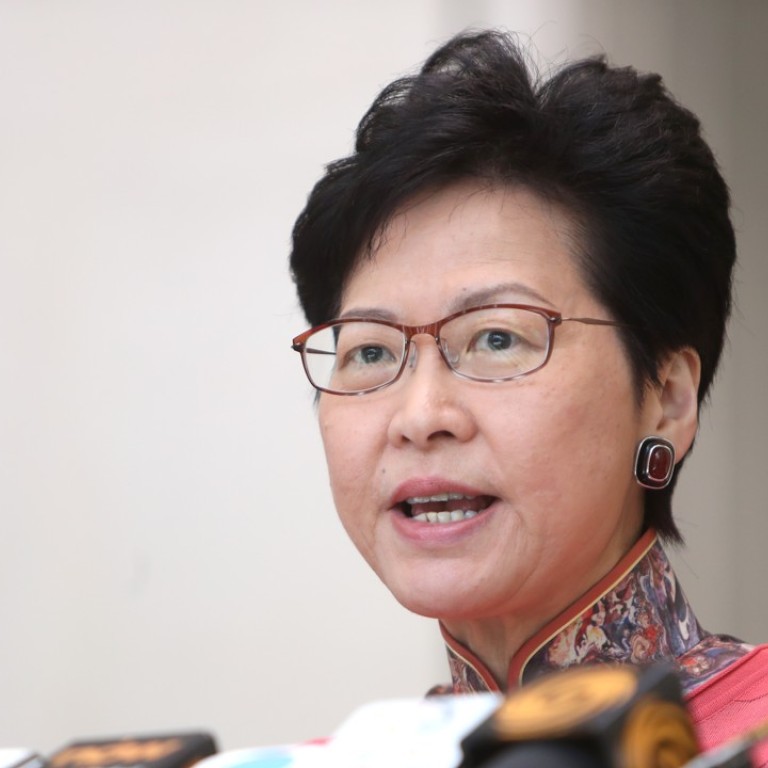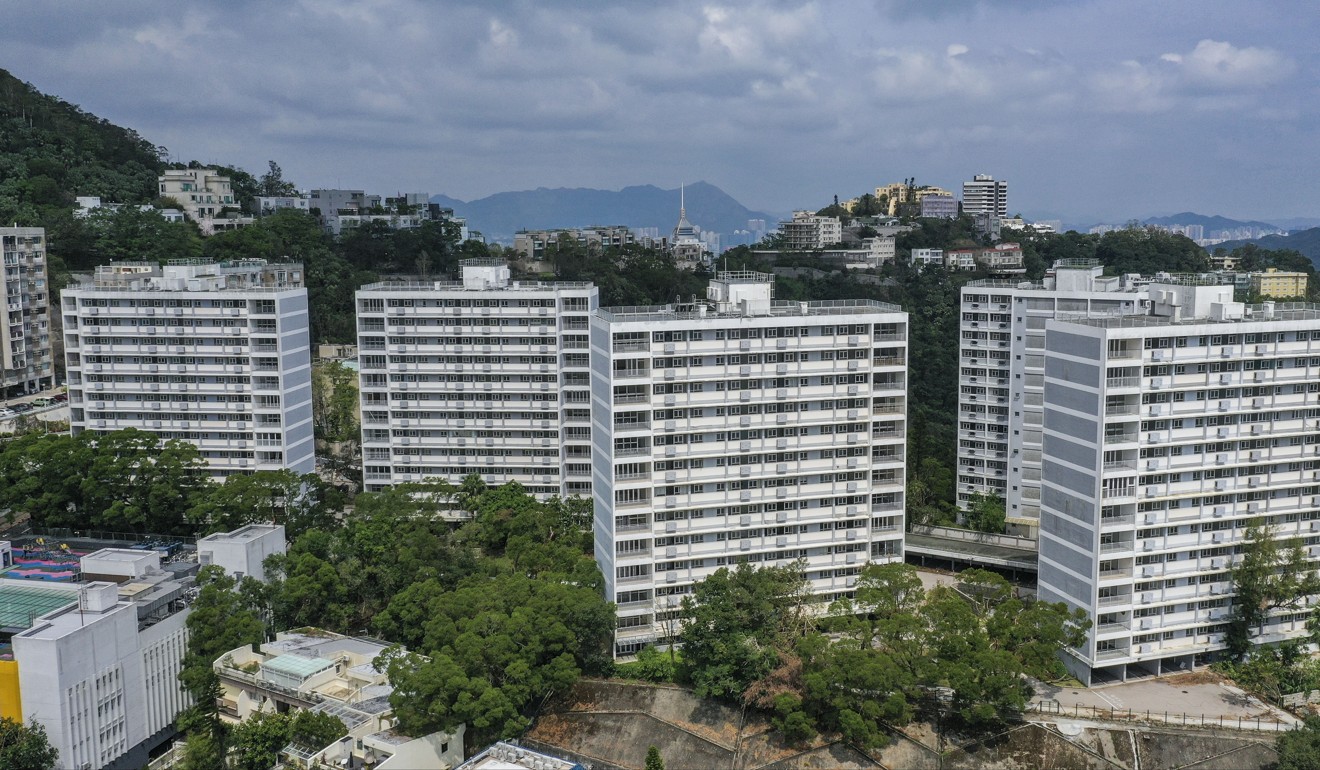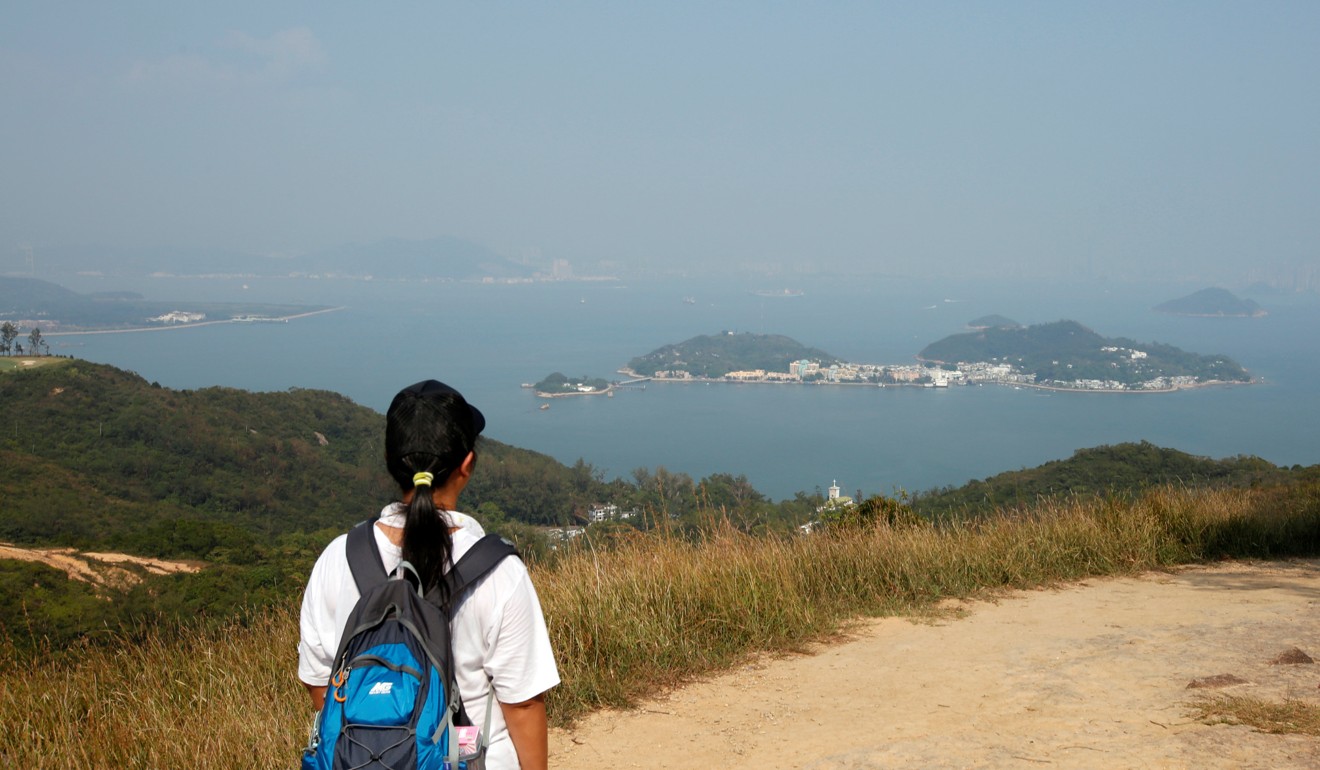
Hong Kong is not deliberately pushing up property prices but will not sell land cheaply, leader says
Chief Executive Carrie Lam makes comments after HK$48.5 billion site in sought-after neighbourhood is withdrawn from market
Hong Kong’s leader has rejected claims the city is deliberately pushing up property prices, a day after a HK$48.5 billion (US$6.1 billion) site on The Peak was withdrawn from sale.
Hong Kong scraps sale of The Peak plot as bids failed to meet target
“It [the move] shows we do not have a high price policy,” she said. “But, we will not sell our land cheaply either to ensure public money [is not misused].”

The market had expected the site, which could yield a total gross floor area of 404,300 square feet, to fetch a record HK$48.5billion, or HK$120,000 per sq ft.
Lam also rejected suggestions that the land sale system had contributed to the city’s unaffordable housing prices, which have been repeatedly ranked among the world’s highest.
She said the government’s reserve prices were set by professional surveyors, based on the latest market trends.
“[The failure of the sale] reminds us that we need to keep land supply steady and constant,” she added. “It should not be affected by fluctuation of economy and property prices.”
Homeowners, developers rush to cash in before further price falls
The chief executive said the city had previously lacked consistent land supply, which led to “today’s dilemma, where there is insufficient supply and skyrocketing property prices”.
The importance of land supply became particularly evident after the latest sale of government-subsidised homes drew a record 258,000 applications, making it one of the most competitive offerings ever of affordable housing in the city.
Affordable housing sale draws record number of applicants
Applications for the 4,431 flats, sold at around half the market rate, closed on Tuesday. The properties, at three housing estates in Cheung Sha Wan, Kai Tak and Tung Chung, will be sold for between for HK$1.18 million and HK$4.7 million, or HK$4,976 and HK$7,246 per sq ft.
Lam said the large number of applications had not surprised the government because the prices were genuinely affordable.

“Hongkongers’ demand for buying a home has been very strong,” she said. “We are willing to increase the ratio of public-sector housing, and subsidised housing for sale.”
Lam again appealed to the public to support the government’s measures to increase land supply.
In her policy address this month, she proposed reclaiming 1,700 hectares of land in the sea to the east of Lantau Island, as one of the most important measures to increase land supply.
But the project, dubbed the “Lantau Tomorrow Vision”, which is expected to cost HK$500 billion – half of the city’s fiscal reserve – has come in for heavy criticism.
‘Benefits outweigh costs’ of plan to reclaim land around Lantau Island
Neon Yiu Ching-hei, a member of land concern group Liber Research Community, said even though Lam argued the government did not have a policy to push up land prices, it had emerged as “one of the biggest beneficiaries from the historically high property prices”.
Even if it were successful, the additional supply would not have helped to make homes more affordable
In the past financial year, the government made HK$164 billion from land sale proceeds, accounting for 27 per cent of the total revenue, making it the largest revenue item.
Yiu said the fact that bids had not reached the reserve price showed the government viewed the market more favourably than developers did. He suspected this was because the government wanted to keep its land sale revenue afloat to fund future major infrastructure projects.
All government land sale revenue goes to the capital works reserve fund.
“[The failure of the sale] shows exactly that Hong Kong’s housing problem is not simply about land supply,” Yiu said. “The sale was expected to fetch a record high price. Even if it were successful, the additional supply would not have helped to make homes more affordable.”
The site on Mansfield Road is the first on The Peak to be sold by the government in eight years. It is occupied by six towers of government quarters that house senior government officials and judges.
Yiu said the government should not leave the quarters unoccupied, and should rent them out at affordable prices to families in need.
“These are our precious housing resources,” he said. “It would be a waste if they were left empty.”

